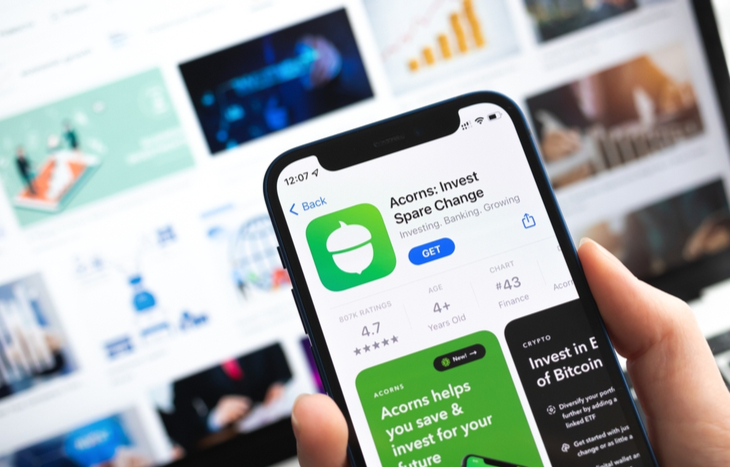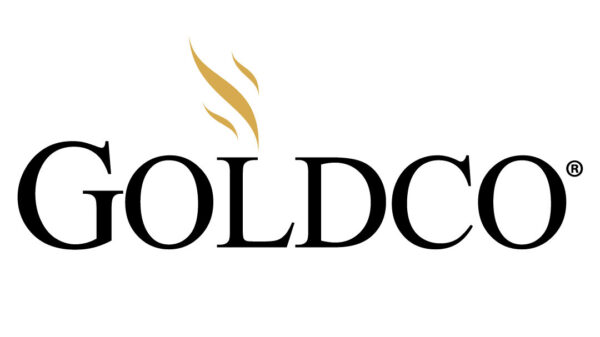Acorns Review: A 2022 Comprehensive Overview
In this Acorns review, we’ll be going over the investment app that allows users to round-up purchases and automatically invest the change into various expert ETF portfolios.
It achieves this with its prebuilt expert portfolios and investing features. As a result, it’s an ideal investing platform for seasoned investors looking to boost their savings. So, let’s jump into the review.
What is Acorns?
Acorns makes passive investing easy for new investors with its simple platform. It allows any investor to invest in exchange-traded funds (ETFs).
However, the platform may be suitable if you’re experienced in investing and have deep pockets. Its flat-fee structure is somewhat more expensive than percentage-based fees for those who are just getting started.
So, Acorns may not be the best option if you’re new to investing and have a limited budget. This is due to the lack of human consultants on the platform and high fees with lower investments.
The robo-advisor features of Acorns make the most sense to investors who like the platform’s “round-up” savings claim. An investment account’s balance rounds to the nearest dollar when a user makes purchases with a linked account.
So all-in-all, Acorns might be most useful to people who sorely need a boost in their savings vs. beginners with low balances seeking the cheapest option.
There are several ways to use the Acorns platform…
Acorns Review: Invest, Later, Spend, Earn and Family
This Acorns review will go over different ways to save with the platform. For example, there are five main ways users can save and invest with Acorns…
- Acorns Invest – A taxable investment account that puts your money into ETFs based on your risk tolerance and financial goals. Round-ups, recurring deposits and on-demand deposits are all options for funding the account. You can take advantage of dollar-cost averaging by setting up recurring contributions with Acorns — as low as $5 at a time. Included in Acorns’ personal plan.
- Acorns Later – This is a tax-advantaged individual retirement account (IRA). This allows users to create an IRA and pick a low-cost portfolio centered on their retirement goals and investment risk. Included in Acorns’ personal plan.
- Acorns Spend – A standard checking account in partnership with Lincoln Savings Bank. As a result of the Smart Deposit feature, you can automatically transfer money from your Spend account to other accounts, such as Invest. Included in Acorns’ personal plan.
- Acorns Earn – An online marketplace that offers a small percentage back on purchases made at hundreds of major retailers. Allows more than 350 leading brands to invest a set amount or a percentage of your purchase price directly into your Acorns Invest account when you spend with them. Included in Acorns’ personal plan.
- Acorns Family – This is the top-tier Acorns account. For $5 a month, it offers all of the previously mentioned services as well as the chance to open an investment account for your kids via Acorns Early. This is essentially a custodial investment account that allows parents to invest on behalf of their children.
Getting Started on Acorns
Acorns’ setup process is simple. First, investors go through the basics: setting up an account with an email and password. In addition, users have the option to set up a four-digit passcode on their smartphones.
Then, the setup process will prompt you to link your bank account and any credit or debit cards. This is key to the platform’s round-up feature, where it automatically invests your spare change.
Following the initial setup process, Acorns has to ask you certain investor questions before you get started. This includes a set of questions about your risk tolerance and lifestyle to find the right portfolio for you. As part of the portfolio construction, Acorns enlisted the help of financial experts, mathematicians and Nobel Prize laureate Dr. Harry Markowitz, who pioneered the modern portfolio theory.
Acorns Review: Fees and Costs
There are two Acorns subscription tiers…
- Personal plan that includes checking, investment and retirement accounts for $3 per month.
- Family plan that includes the three accounts you get with the Personal plan, plus additional investment accounts for your children for $5 per month.
Acorns claims to charge low fees, but it depends on how you measure them. Despite of the app’s promise to make investing affordable for everyone, the monthly fee will eat up a big chunk of your returns if you put away just a few dollars a month.
The type of investors Acorns is trying to attract (young people just starting) will end up paying more than they would with other robo-advising platforms. So, to maximize your Acorns account, set up recurring deposits to grow your portfolio and minimize fees.
Here’s an example of how Acorns’ fees can add up. Suppose you invested $100 into a new investment account. You would pay $0.25 annually if you use Betterment, which charges 0.25% for its basic Betterment Digital offering. However, in an Acorns Personal plan, you would spend $36 annually on your $100 investment.
As you invest more, the percentage of fees will become smaller. However, this may take time and isn’t a feasible option for everyone.
Expense ratios for investments range between 0.03% and 0.25%. If you choose Early, Invest or Later, you will pay this amount.
Acorns Review at a Glance
Here is the Acorns review summarized…
| Account Minimum |
|
| Management Fees |
|
| Expense Ratios |
|
| Account Fees |
|
| Available Assets | |
| Account Types |
|
| Customer Support |
|
| Human Advisors |
|
| Dividends |
|
| Tax Reporting |
|
| ETFs |
|
| Account Protection |
|
Now that we’ve looked at the Acorns Review at a glance, let’s dive into the pros and cons of the platform.
Pros and Cons of Acorns
Pros
- Options for investing in a portfolio that is risk-appropriate
- Automatic savings features encourage investors to save more
- Easy-to-use interface
Cons
- There are high fees depending on the amount of money you have in your account
- Costs associated with transfers
- No tax-loss harvesting to minimize clients’ tax bills
- As opposed to other robo-advisors, you will have to pay fees to access your checking account
Now, let’s sum up this Acorns review by looking at the final thoughts.
Acorns Review: Is It Worth the Investment?
A highlight of this Acorns review is noting that it charges an expensive monthly fee compared to other investing platforms. However, it offers a lot of educational content that would be helpful for new investors, in addition to the investment opportunities from rounded-up purchases.
If you are a new investor, the educational content might be worth the price of admission. Its automatic deposits and straightforward investment strategies make it a great option for anyone who wants to get started but doesn’t know how. Nevertheless, the monthly fees might not be worth it for many… especially when there are cheaper alternatives.
So, make sure to do your research before choosing an investing platform. If you’re interested in other investment platforms, check out the best online brokers of 2022.






